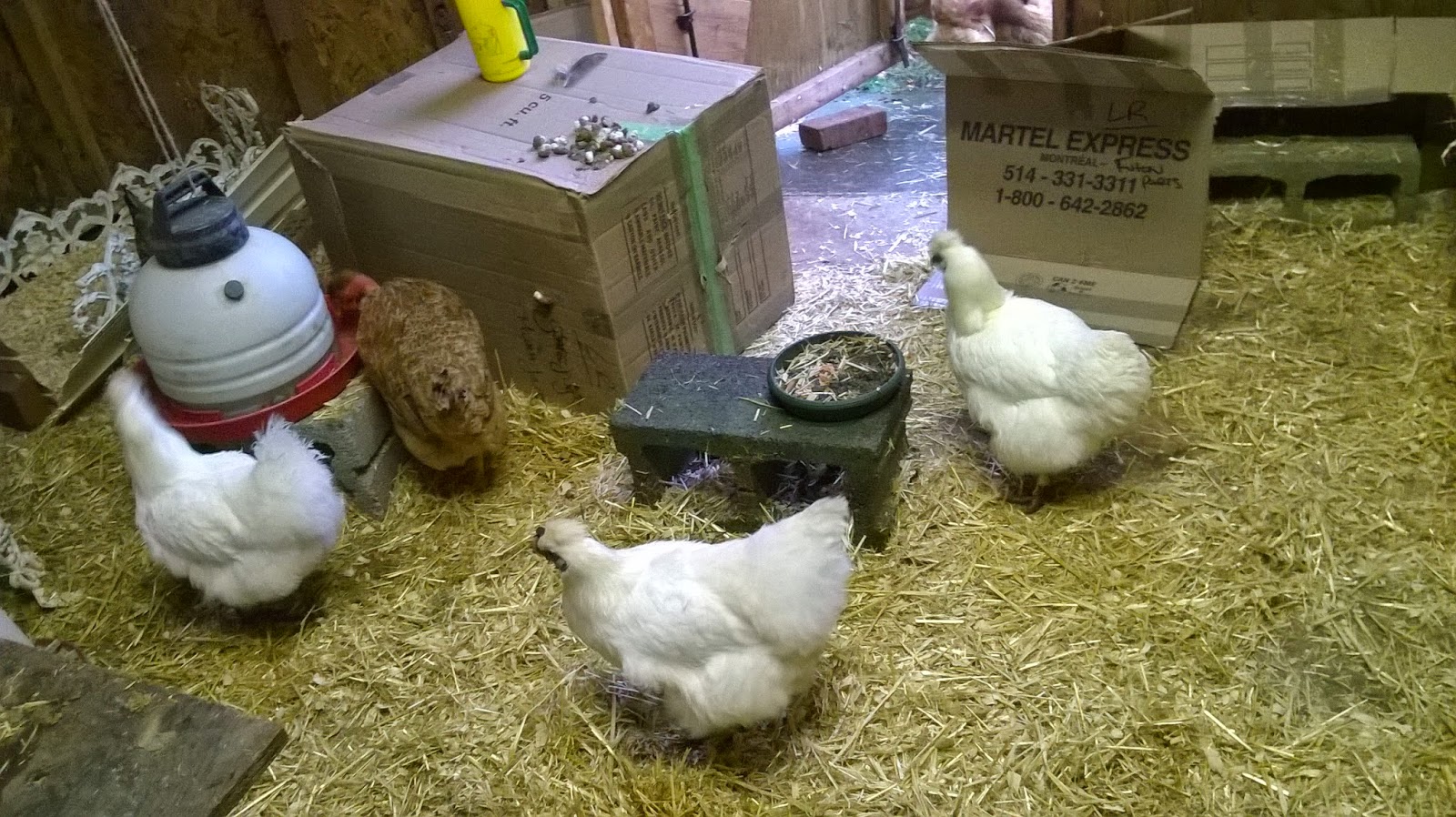There's been a lot of interest in our newly acquired chicken flock- demands for updates, pictures, egg production statistics - so we thought we'd start a blog to chronicle their (and our) adventures.
So here's the story:
Just before Christmas we found an ad for twelve free chickens- complete with feed, accessories, and whatever else we can haul away before spring (including their entire coop and run). The boy who previously owned the flock was more interested in building their very elaborate coop than in caring for them, and now that it's winter and the chickens aren't laying much, the boy's father felt it was best to give the whole setup away.
Hence, last Tuesday night we drove out to the borderlands of Amish country and, with the aid of the very helpful father and two little yappy dogs ("aid" might be the wrong term for the dogs), wrangled all twelve chickens into a bunch of moving boxes, loaded them into our Honda Fit, and brought them home to live in one of our many sheds. The "Grande" shed, if you're a Starbucks fan. The catch to all of this is that the chickens are kind of old.
So, the main questions we are getting:
Can our already 2-year old chickens still lay eggs?
Shouldn't they all be dead by now?
And the answers:
Probably, and no.
Chickens naturally rely on daylight to regulate their laying cycle. As days shorten, the chickens will take a break from laying and let their bodies recover a bit before they go back to laying in the spring (hence, spring chicks). Commercial operations keep chickens laying as long as possible by tricking them into thinking their days are perpetually getting longer with electric lights. They also choose breeds that lay early and a lot. By the time caged commercial hens are 18 months old or less their bodies are so depleted in calcium that 29% will have experienced at least one broken bone and their spent bodies can't even be used in soup[1].
How long chickens lay under natural conditions depends on the breed and the quality of their lives. According to various backyard chicken forums, egg production will begin to decline around 2-5 years of age, but will continue at a slower rate for some time after that. Some bloggers report chickens producing a couple of eggs a week up until 7 years or later. Breeds that take longer to start laying and lay fewer eggs per week supposedly will keep laying longer than a high production hybrid. We got a of mix of breeds, so we're not really sure what will happen. Given that they were still laying a little bit up until we stressed them out with the move, we expect them to go back to laying a couple of eggs each a week in the spring.
At any rate, so there's no mistake, here is their egg production so far:
Feel free to tell us we're crazy. In the meantime, they're doing a good job of eating our scraps and producing compost for our future garden. We've been turning the lights on and off in the shed at pretty random times over the last few days (we built them a window today), and they're generally pretty stressed out from moving. Its funny to watch them when we switch off the lights at night. They'll be busy eating and scratching in the straw, but as soon as the lights go out, silence...then gentle clucking as they scuttle around looking for a place to perch.
Anyhow, pictures:
 |
| Golden Comet, Barred Rock, Turken, Brahma, and Rhode Island Red (from bottom to top). |
 |
| Golden Comet and Barred Rock |
 |
| Silky and Brahma. Despite provision of nesting boxes and roosting poles by a benevolent creator, the chickens' favorite spot is under the wheelbarrow. |
 |
| Brahma explores the far corner of the shed, and the mysterious boxes that took them from their only home. |
 |
| Silkys hiding in the corner. The chickens love this corner. |
 |
| From left to right: Silky, Golden Comet, the delightfully ugly yet practical Turken, Brahma, Golden Comet. |
 |
| Closeup of Turken eating some grit. |
 |
| First trip outside. |
 |
| Everyone else is outside in the rain, so the Silkys and Turken take the opportunity to eat some chicken feed. Does this make them the dumbest or the smartest of the flock? |
 |
| It's wet, let's go back in. |
 |
| Horses: "Looks like the neighbors got chickens" "Well, there goes the NEIGH-borhood" |
 |
| Lisa dropped her phone on the way to take more pictures, and now the touch screen only works with a mouse. These will have to do until the new screen arrives. |
1. Hester, Patricia Y., et al. "Can Lighting Programs be Manipulated in the Growing Phase to Improve the Skeletal Integrity of Commercial Egg Layers."


No comments:
Post a Comment